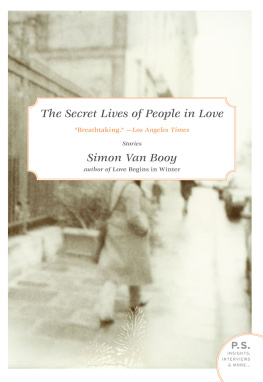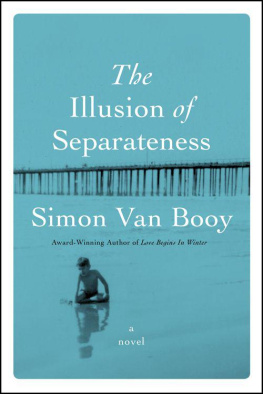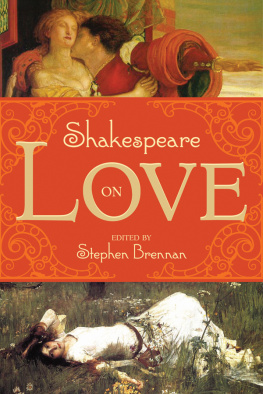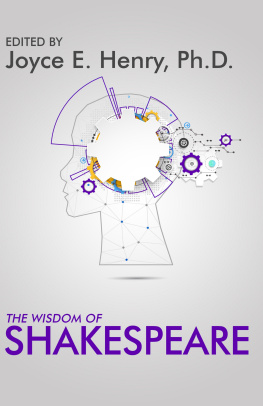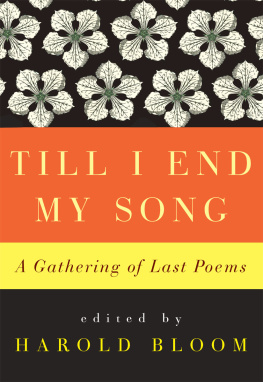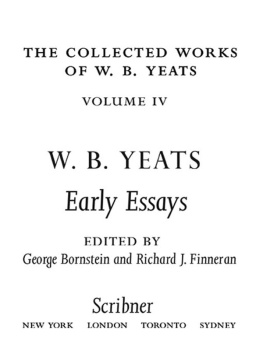This book is dedicated to my mother and father,
Joan and Stephen, for whom love is a
journey with no destination
My hope for these books is to present interesting and exciting philosophical ideas in a straightforward, but intelligent, language that can be understood by everyone. I believe that philosophy is a subject we have a natural gift for, but a subject often regarded as one with no practical valueand closed to anyone outside the walls of universities. I am committed to the idea that these central questions of life are part of our everyday livesthat we all possess the skill and agility to tackle them, and that by pondering them, we can experience more fulfillment in our relationships, in our work, and in how we view ourselves.
Inside these books are readings, poems, quotations, and visual images that will inspire you to continue exploring the subject for years to come. I have tried my best to present philosophical ideas with no immediate resolution as immediately accessible for everyday thinking.
These volumes are not meant to convince you of anything, to be a definitive source, or to offer any new insights on a topic. Their purpose is simply to introduce you to an age-old theme that quite possibly has already taken a key role in your life.
To begin then, let me tell you about a small statue I once saw in a New Orleans public park. The young man of marble who stood before me (discolored by years of affection from birds) was holding a book to his heart with one hand, while using his other hand to pick a grape from a vine.
If the grape were to represent life, and the book over his heart, knowledge, then one interpretation may be that book learning and actual life experience complement each other. So by reading about other peoples experiences in this book, we may begin to understand ourselves with fresh insight. Reading reassures us that no matter how alone we might feel, there are many othersspread as wide as history itselfwho have felt the same way we have, who have occupied the rooms we find ourselves locked in at various points of our lives.
One celebrated aspect of literature is that unlike the ambitious exactitude of science, literature is often ambiguousmeaning that two people might have very different ideas about what a play, poem, or book is about. While at first this implied vagueness might seem detrimental to literature, its one of its sustaining virtues, and allows people from different cultures, and even different time periods, to learn something about their own lives from a single story. If a story were viewed as a literal history, one could argue that it wouldnt be quite as usefulbecause history is traditionally viewed as a record of what we think happened, whereas story and myth are more like advice whispered to us by a wise grandmother. Many of the great geniuses who lived over the last five thousand years were not writers at all, but oral storytellers who left it up to others to write down what they said.
Stories, parables, and dialogues were their preferred method of teachingin other words, instead of saying to a lazy child: Go tidy your room now! our greatest thinkers would probably have begun with something like: There was once a girl who never tidied her room
As you read this introduction, someone, somewhere, is falling in love; a child is calling out to someone in the darkness as he awakes from a bad dream; someone is sitting alone in a car missing someone as rain pelts the windshield; someone is leaning on a desk, anticipating happiness he hopes love will one day bring him; and perhaps someone very old is looking out a window, wishing he had said yes instead of walking away on that snowy afternoon in 1951.
No matter what we do, love saturates our lives in every possible way. Even when we try to escape, it finds usif merely to tease us with what we could have had.
Through the readings, paintings, quotes, ideas, and confessions within these pages, we are going to explore why we seem so desperately to need love, but also why we need to give it.
The hunger for love is much more difficult to remove than the hunger for bread.
Mother Teresa
George Eliot (whose real name was Mary Ann Evans) was born in 1819 in rural England. As a young woman, she lost her religious faith (her father blamed it on her intellectual friends), and when her father died in her thirtieth year, she moved to London and became a writer. In London, she developed an intimate friendship with George Henry Lewes, whom she was unable to marry because Lewes was already married (though estranged from his wife). Evans and Lewes shocked their friends and family in 1854 by deciding to openly live together. It was at this point in her life, cut off from so many people, that Evans started writing fiction. Not wishing to draw attention to her unconventional life, the name George Eliot was chosen as a pseudonym. She died in 1880.
Silas Marner is about the life of a lonely weaver who finds an unlikely visitor inside his cottage one evening. The sight of the visitor fills Marner with a sudden and desperate feeling of lovea feeling that gives meaning to his life and frees him from a state of emotional isolation imposed on him by temperament and circumstance.
Eliot considered Silas Marner to be her masterpiece.
In the days when the spinning-wheels hummed busily in the farmhousesand even great ladies, clothed in silk and thread-lace, had their toy spinning-wheels of polished oakthere might be seen in districts far away among the lanes, or deep in the bosom of the hills, certain pallid undersized men, who, by the side of the brawny country-folk, looked like the remnants of a disinherited race. The shepherds dog barked fiercely when one of these alien-looking men appeared on the upland, dark against the early winter sunset; for what dog likes a figure bent under a heavy bag?and these pale men rarely stirred abroad without that mysterious burden. The shepherd himself, though he had good reason to believe that the bag held nothing but flaxen thread, or else the long rolls of strong linen spun from that thread, was not quite sure that this trade of weaving, indispensable though it was, could be carried on entirely without the help of the Evil One. In that far-off time superstition clung easily round every person or thing that was at all unwonted, or even intermittent and occasional merely, like the visits of the pedlar or the knife-grinder. No one knew where wandering men had their homes or their origin; and how was a man to be explained unless you at least knew somebody who knew his father and mother? To the peasants of old times, the world outside their own direct experience was a region of vagueness and mystery: to their untravelled thought a state of wandering was a conception as dim as the winter life of the swallows that came back with the spring; and even a settler, if he came from distant parts, hardly ever ceased to be viewed with a remnant of distrust, which would have prevented any surprise if a long course of inoffensive conduct on his part had ended in the commission of a crime; especially if he had any reputation for knowledge, or showed any skill in handicraft. All cleverness, whether in the rapid use of that difficult instrument the tongue, or in some other art unfamiliar to villagers, was in itself suspicious: honest folk, born and bred in a visible manner, were mostly not overwise or cleverat least, not beyond such a matter as knowing the signs of the weather; and the process by which rapidity and dexterity of any kind were acquired was so wholly hidden, that they partook of the nature of conjuring. In this way it came to pass that those scattered linen-weaversemigrants from the town into the countrywere to the last regarded as aliens by their rustic neighbours, and usually contracted the eccentric habits which belong to a state of loneliness.



